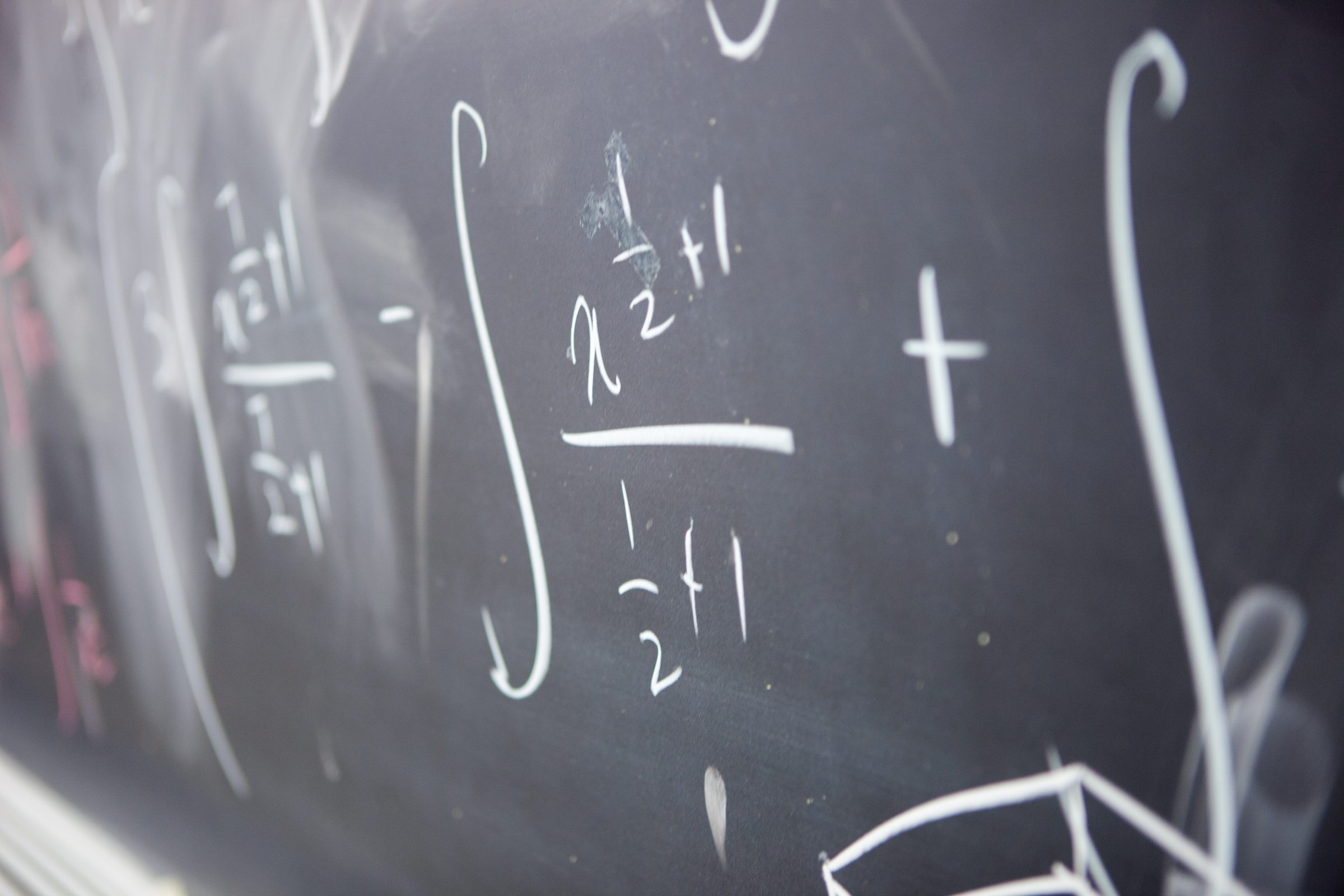Program Requirements
Students who complete the major requirements for a bachelor of arts (BA) or bachelor of science (BS) degree in mathematics will develop the ability to think rigorously, an understanding of the fundamental principles and techniques of mathematics, an appreciation for mathematics as the primary language of science and an important part of our cultural heritage, the ability to learn independently and utilize technology effectively for learning and problem solving, and the ability to communicate mathematics in both oral and written forms.
Major Requirements (BA)
36 major course credit hours
120 total credits for graduation
Required courses: MATH 1410, 1490, 1510, 1520, 2420, 3010, 3050, 3100, 3110, 3210
A comprehensive examination is required for graduation.
For students in secondary education: The B.A. in Math meets the requirement for the Senior High Endorsement in the area of mathematics.
Honors For Departmental Honors in Mathematics, 4 sh of MATH 4000 are required in addition to the 36 sh for a BA Application for admission should be made the second semester of the third year.
Major Requirements (BS)
40 major course credit hours
120 total credits for graduation
Prerequisites and supporting courses: CSIS 1210 or PHEN 1510; 2 additional hours in MATH numbered 2000 or higher.
Required courses: MATH 1410, 1510, 1520, 2030, 3050, 3100, 3150, 4010
Electives:
Option A: 8 additional hours contained in one of the following three options.
Option B: 8 additional hours in Mathematics, numbered 2000 or higher or chosen from PHEN 2110, 3310, 3410, 3510. Option C: BSE 3210, 3220
A comprehensive examination is required for graduation. An oral presentation of a paper outside the classroom (the paper and venue to be previously approved by the department) is required for graduation.
Departmental Honors in Mathematics — 4 sh of MATH 4000 are required in addition to the 40 sh for a BS. Application for admission should be made the second semester of the third year.
Minor Requirements
20 semester hours (sh)
- Required core courses (16 sh) — MATH 1410, 1490, 1510, 1520
- Elective courses — Any additional 4 sh in mathematics courses numbered 2000 or higher
Academic Catalog Core Curriculum
Course Descriptions
The following descriptions are a sample of courses you may take as a math major. For a complete list of required courses, please review the academic catalog.
Introduction to mathematical logic and writing proofs, providing a solid foundation for further work in mathematics. Topics include propositional logic, first-order logic, proof techniques, elementary number theory, sets, Boolean algebra, and relations. Students should have completed four years of high school math.
Introduction to applied statistical analysis. Descriptive, correlational, and inferential statistics; concepts of population, sample, sampling distribution; elements of probability; parameters of discrete distributions; hypothesis testing: analysis of proportions, means, and variance; linear regression. Cross-listed with STAT 1490.
Beginning calculus, limits and continuity, derivatives, mean value theorem, applications of derivatives, antiderivatives, Riemann Sums, introduction to the definite integrals. Uses computers.
Continuation of MATH 1510. Fundamental theorem of calculus, evaluation of definite integrals, applications of definite integrals, introduction to differential equations, infinite sequences and series. Uses computers.
Study of ordinary differential equations, especially first and second order, with applications to geometry and the physical life sciences. Uses computers.
Providing a solid foundation for further work in mathematics also required for actuarial certificate test-I (P-1). Topics include: Numerical and descriptive statistics, Probability and the laws of probability, discrete random variables and their probability distributions, continuous random variables and their probability distributions.
A detailed study of functions of several variables including differentiation, line and surface integrals, and Green and Stokes' theorems. Uses computers.
Introduction to the fundamentals of real analysis including real numbers, limits, derivatives, and the Riemann integral.
A study of matrices, vector spaces, linear transformations, orthogonality, eigenvalues, and eigenvectors. Uses computers.
Study of groups, rings, ideals, integral domains, fields and their applications.
Providing a solid foundation for further work in mathematics also required for actuarial certificate test-I (P-1). Topics include: Multivariate Probability distributions, functions of random variables, sampling distributions and the central limit theorem, estimations and their methods, and hypothesis testing.
Study of history of mathematics focusing on Western and non-Western primary sources; using of historical invention as a teaching tool in mathematics; professional writing in mathematics. Prerequisite: MATH 1410, 1520.
Complex numbers, elementary complex functions, the Cauchy theory, infinite series, the calculus of residues, and introduction to conformal representation.
An introduction to numerical methods with computer implementation. Solution of linear, non-linear, and differential equations; interpolation and approximation; numerical integration and differentiation; and error analysis.
Honors independent study in Mathematics.
Capstone course for mathematics major. Students learn to read, analyze, and learn mathematics not contained in standard undergraduate textbooks. Written and oral presentations required. Student must be of fourth-year standing and a mathematics major.
Independent Study in Mathematics.
Please refer to the Internship section for requirements and guidelines.


